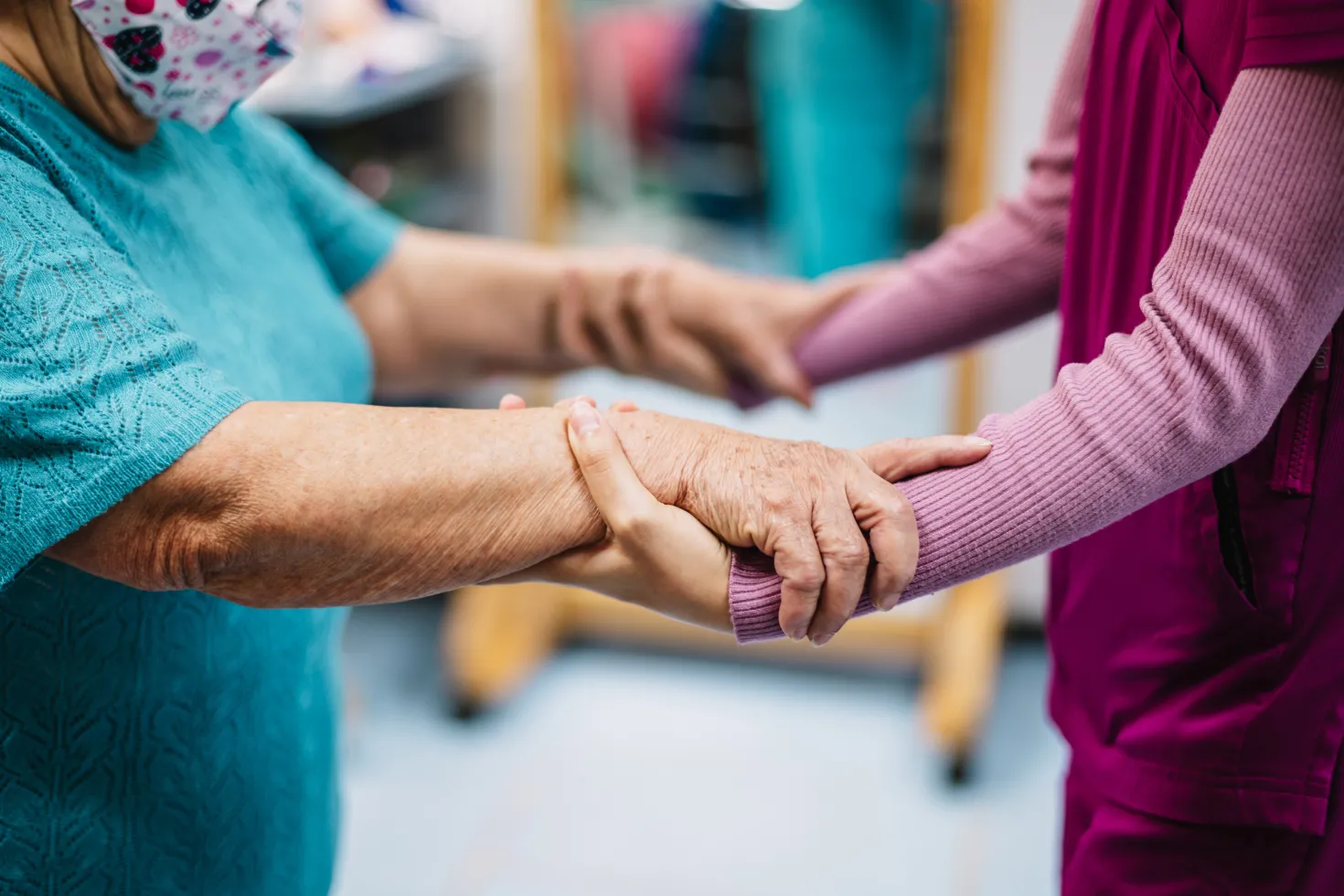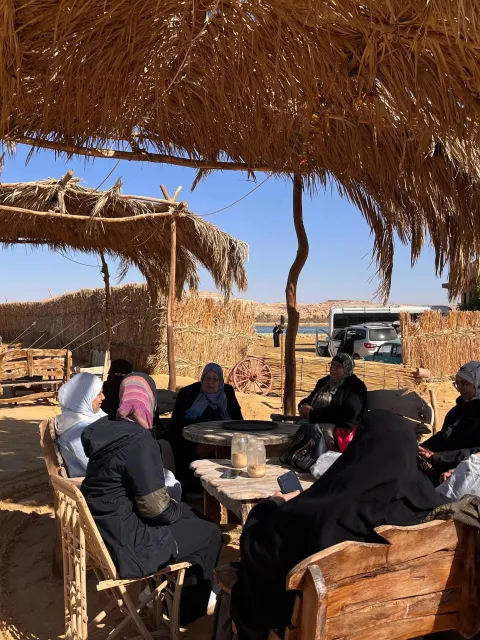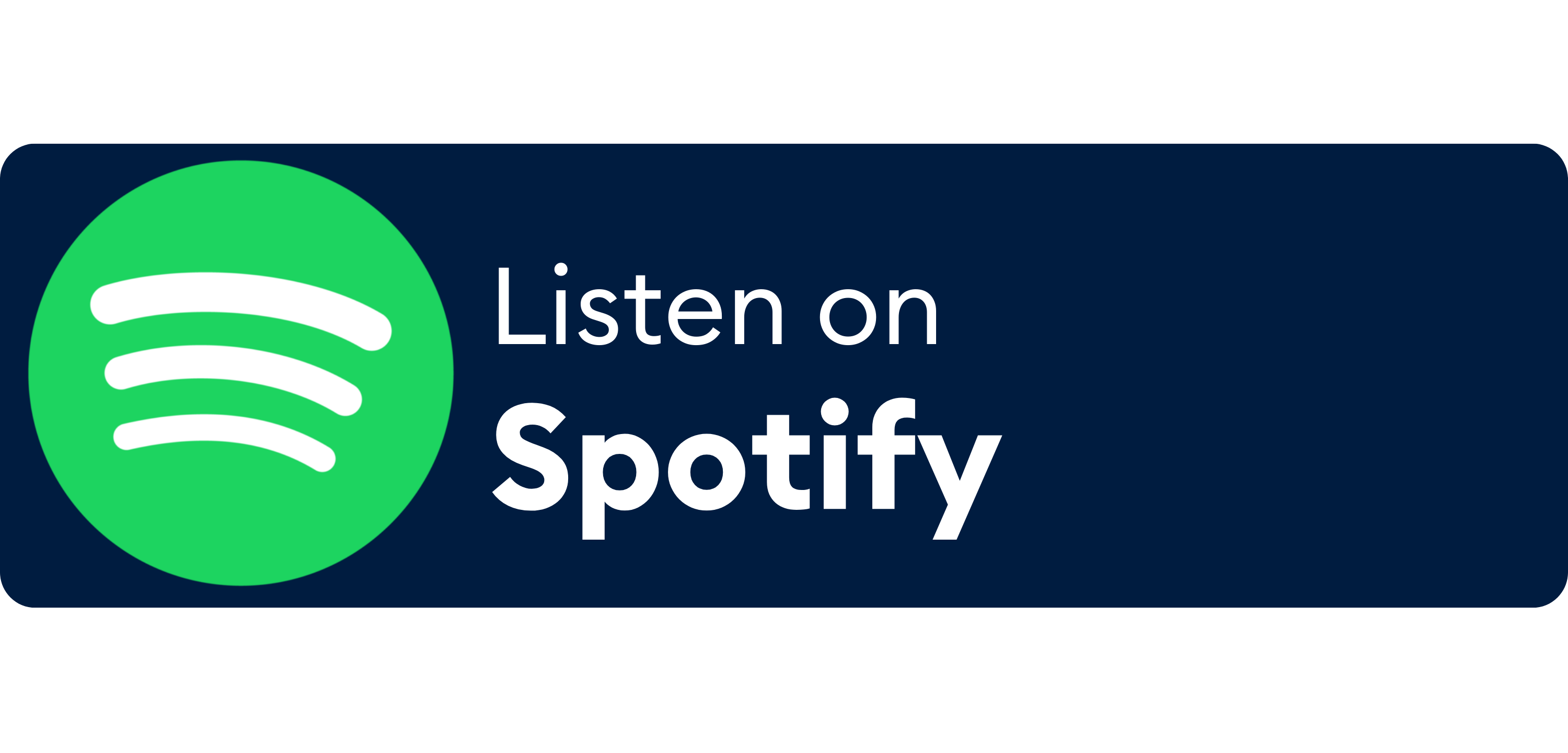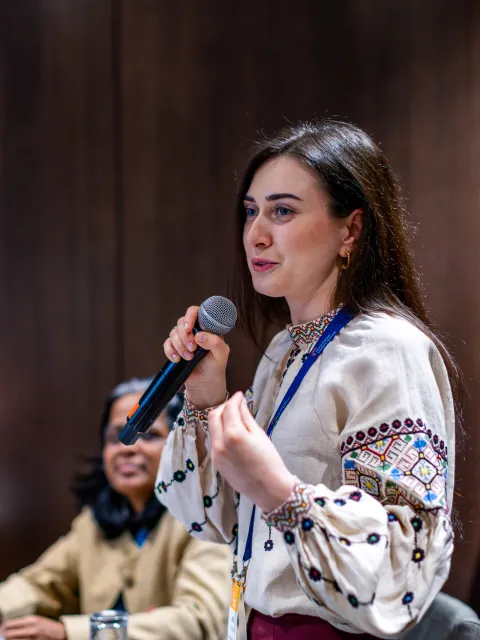Digital platforms expand supportive care – but human connection remains at the core
With supportive care often unevenly integrated into cancer services, two UICC member organisations in India and Mexico are using digital tools to meet the diverse needs of people living with cancer – while preserving the essential human dimension.

HIGHLIGHTS
- CanWin by Apollo Cancer Centres connects cancer patients across India via a digital support platform, offering multidisciplinary guidance, peer exchange, and community-based access, with plans for a global mobile app launch in 2026.
- VAPORTI, run by the Grisi Foundation, supports people with cancer in Mexico – particularly those affected by pancreatic cancer – through virtual counselling, patient navigation, and advocacy. The Foundation recently launched the C-Control app, designed for easy use and effective personal health planning across all cancer types.
- Both initiatives emphasise empowerment through peer support, informed decision-making, and bridging gaps in public healthcare systems, particularly for underserved or rural communities.
- Their models show how technology can humanise care, offering culturally and contextually relevant support that prioritises dignity, inclusion, and quality of life.
Based on interviews with Mr Dinesh Madhavan, President, Group Oncology and International, Apollo Hospitals Enterprise Ltd, and Ms Fernanda Pastrana and Ms Constanza Linares of the Grisi Foundation.
The medical treatment people receive for cancer is only one part of their care. From the moment of diagnosis, they often face a complex mix of emotional, psychological, practical, and social challenges that extend well beyond managing the disease itself. They may experience fear and uncertainty, need help understanding their diagnosis, struggle with the financial or logistical demands of treatment, or feel isolated from their support networks.
Supportive care – which includes services such as counselling, nutritional guidance, palliative care, peer support, and help navigating health systems – is designed to address these needs. It helps improve quality of life and well‑being for people living with cancer and their families. While still not always fully implemented, understood, or even recognised, it is part of any comprehensive and people-centred cancer care.
Efforts to strengthen supportive care are emerging from both public and private sectors in countries and regions around the world.
In India, Apollo Cancer Centres –one of the country’s largest private healthcare providers and a UICC member organisation –has developed CanWin, a cancer support group that brings together people living with cancer from around India and beyond. The platform facilitates peer-to-peer connection and multidisciplinary guidance, offering people with cancer access supportive care beyond the clinic.
In Mexico, the Grisi Foundation – the philanthropic arm of the health and personal care company Grupo Grisi – runs VAPORTI, a programme focused on improving care and support for people diagnosed with pancreatic cancer, and also a UICC member. VAPORTI combines digital tools, one-to-one guidance, and advocacy to help patients navigate the healthcare system and make informed decisions at every step of their care.
Though the tools and settings differ, both initiatives aim to reduce isolation and improve quality of life by addressing needs that extend beyond medical treatment.
Connecting lives: a digital platform for sharing, support, and guidance in India
CanWin unites people via a digital platform designed to address long-overlooked aspects of supportive care. It connects people with cancer, caregivers, and healthcare professionals, including oncologists, nurses, speech therapists, dietitians, and more.
“We started looking at how to make people ‘win’ over cancer,” said Mr Dinesh Madhavan, President, Group Oncology and International, Apollo Hospitals Enterprise Ltd (AHEL), in an interview with UICC. “Winning doesn’t necessarily mean remission. It means the quality of life, the state of mind, and dignity.”
The platform allows people with cancer to share experiences and access expert guidance from specialists who work collaboratively to respond to their queries. These are often issues that may never arise in a clinical consultation, such as fertility, femininity, relationships, or living with long-term side effects.
“It’s a place where a woman who has undergone breast cancer surgery can talk about how to feel like a woman again,” Mr Madhavan explained. “Someone else who was told their leg needs to be amputated due to osteosarcoma came looking for options – we were able to share information on how people are managing with prosthetics or even with 3D-printed solutions.”
For another user, according to Mr Madhavan, the platform helped in understanding options for preserving voice after laryngeal cancer, highlighting how peer and professional advice can empower people to make informed, personal decisions.
“This exchange of lived experiences is central to CanWin’s purpose. The person who has gone through the journey is often the best person to endorse or validate what lies ahead,” said Mr Madhavan. “Through peer connections, individuals can discuss treatment side effects, surgical decisions, voice preservation after laryngeal cancer, or adapting to life with a colostomy.”
Beyond advice, the platform helps identify local treatment centres and connects people to others in the same region who are undergoing or have completed similar therapies.
Apollo has committed to extending CanWin's reach by developing a mobile app. The aim is to create open access for users globally, with the goal of launching the app around World Cancer Day, on 4 February 2026.
CanWin's structure is also designed to be inclusive across India's vast geography. While urban users may access the digital interface, people in rural areas can attend in-person support meets in local languages and formats tailored to community norms.
The platform is being built to accommodate different levels of digital literacy. Those unable to navigate the app can engage through web portals or join community gatherings, ensuring equitable access.
Building trust and tools for people with pancreatic cancer in Mexico
Dedicated specifically to pancreatic cancer – a disease that is generally detected late, offers low chances of survival, carries a heavy emotional toll, and lacks visibility in public health planning – VAPORTI provides targeted support to patients and families facing one of the most complex and under-resourced cancer journeys.
Motivated by personal experiences – including the deaths of her best friend and her husband’s uncle to the disease – the Programme Director, Fernanda Pastrana, created a model of care rooted in empathy and action.
"We understood the patient needs went far beyond medical care," said Pastrana. “They need to be heard, accompanied, guided. They need help understanding their diagnosis, and often even just to be able to ask questions without fear.”
Starting as a small operation donating surgical prostheses to public hospitals, the initiative has evolved into a comprehensive support system that now includes emotional counselling with a psycho-oncologist, nutritional support, second medical opinions, and end-of-life care navigation – helping individuals and families understand their options, coordinate care, and access support during the final stage of life.
“What started as a personal initiative has become something institutional,” said Constanza Linares, Director of the Grisi Foundation. “We want to make sure this model stays and grows.”
Pastrana, who also acts as a patient navigator, provides direct assistance to individuals at all stages of their illness, helping them understand medical information, find doctors, and get support.
Recognising the practical barriers many face in accessing care – including long travel distances and delays in Mexico’s public health system – VAPORTI has also prioritised virtual services. Many of its emotional and nutritional counselling sessions take place online, and monthly support group meetings offer a forum for people to connect, often through caregivers acting on behalf of other relatives. Moderated WhatsApp and Facebook communities ensure continued peer exchange.
“We work with people who would otherwise have no access to this kind of care,” added Linares. “That’s the role of the Foundation – to reach those who are often forgotten.”
In a context where resources are limited and waiting times can be long, the Foundation helps people anticipate needs, advocate for timely care, and navigate fragmented services. Pastrana shares, “We had someone who had been told to wait two months for chemotherapy. With VAPORTI’s support he secured care at a private clinic within days, and later returned to public treatment.”
In another case, a member of the support group channelled his energy into launching a small business, creating and selling salsas. Though unable to taste the products himself due to side effects, the project brought his family financial support – and him, a sense of purpose.
To complement this human-centred approach, the Grisi Foundation launched In July the C-Control app – a digital tool designed to support and empower people affected by any type of cancer through more informed, coordinated care.
Developed with input from medical professionals and social workers, the app enables users to record and track their medical history, organise appointments, monitor symptoms, and securely share information with caregivers and clinicians. The app was also developed with secure, confidential data handling in mind, a key factor in building trust among users who may be hesitant to share personal medical information online.
Patients and caregivers access the app not only for practical tools but as a way to better prepare for medical visits, advocate for their needs, and stay connected to a broader community of support.
For Pastrana, the most powerful impact of the programme lies in how it helps initiate more meaningful conversations. “It gives people something to take to their doctor. It helps them ask questions they didn’t know how to ask. It’s not just a record – it’s a starting point for better care.”
This personalisation of care is also a matter of justice, says Pastrana. “Here, people often leave a doctor’s office not understanding a word of what was said. The system is impersonal. We help them ask the right questions, and get the answers they deserve.”
The design of the app reflects this commitment to accessibility. “It’s built for people who aren’t always comfortable with technology,” said Pastrana. “In many cases, it is caregivers who use the app or attend support sessions on behalf of older family members, acting as intermediaries to ensure their relatives receive the guidance they need. It allows the whole family to be involved.”
VAPORTI also engages in public advocacy, pushing for greater awareness of pancreatic cancer and better resource allocation, and is involved in campaigns to improve the national cancer registry.
Both CanWin and VAPORTI are shaped by the realities of the people they serve, demonstrating how supportive care can adapt to different needs and contexts. Whether through peer support or patient navigation, voice preservation or treatment tracking, the work of these programmes reflects an evolving understanding of what it means to care for someone with cancer.
By using technology not to replace, but to extend the reach of human care, CanWin and VAPORTI offer practical pathways for making support more accessible, more personal, and more relevant – wherever someone is on their cancer journey.
Last update
Friday 29 August 2025




